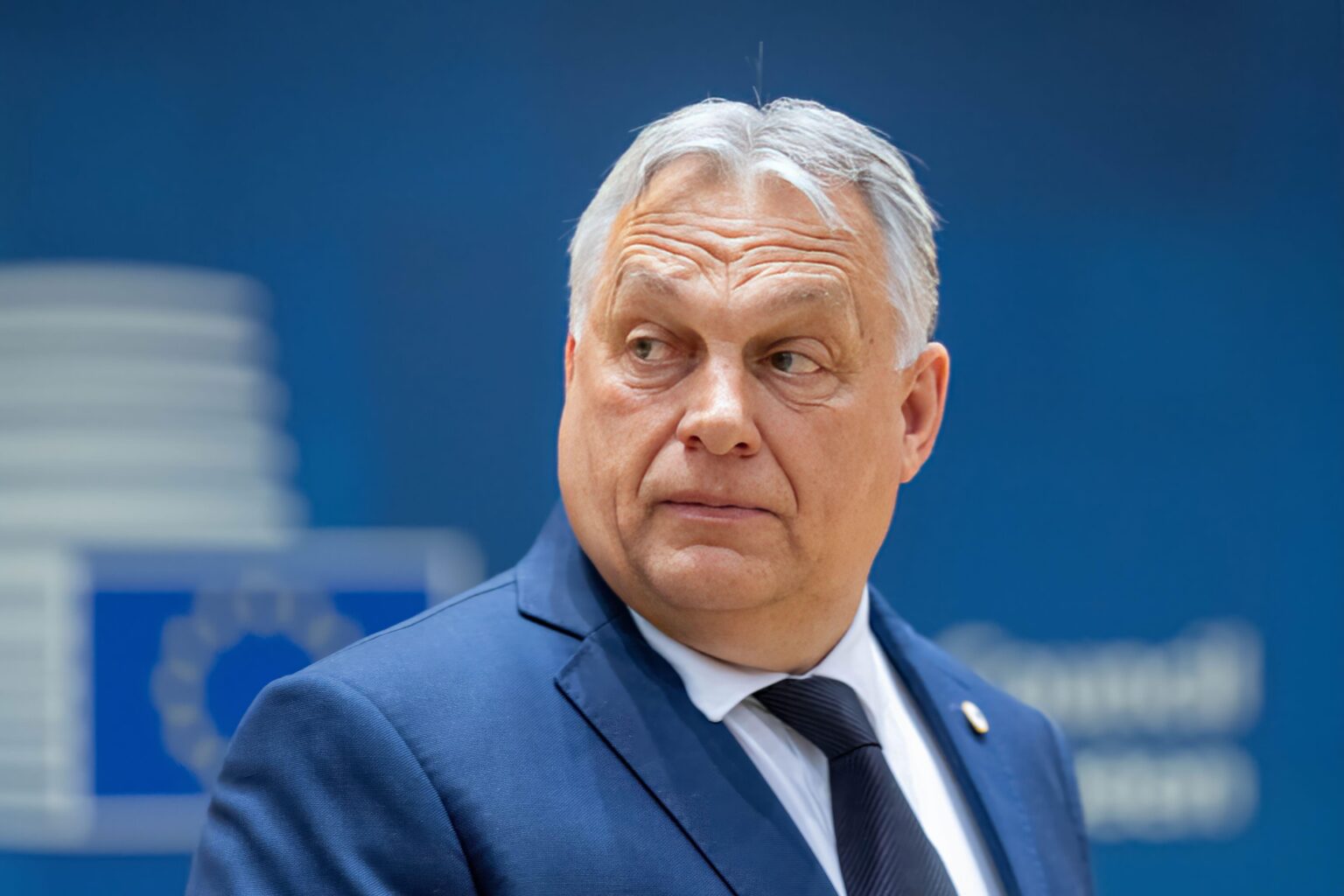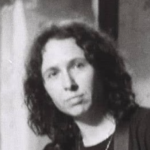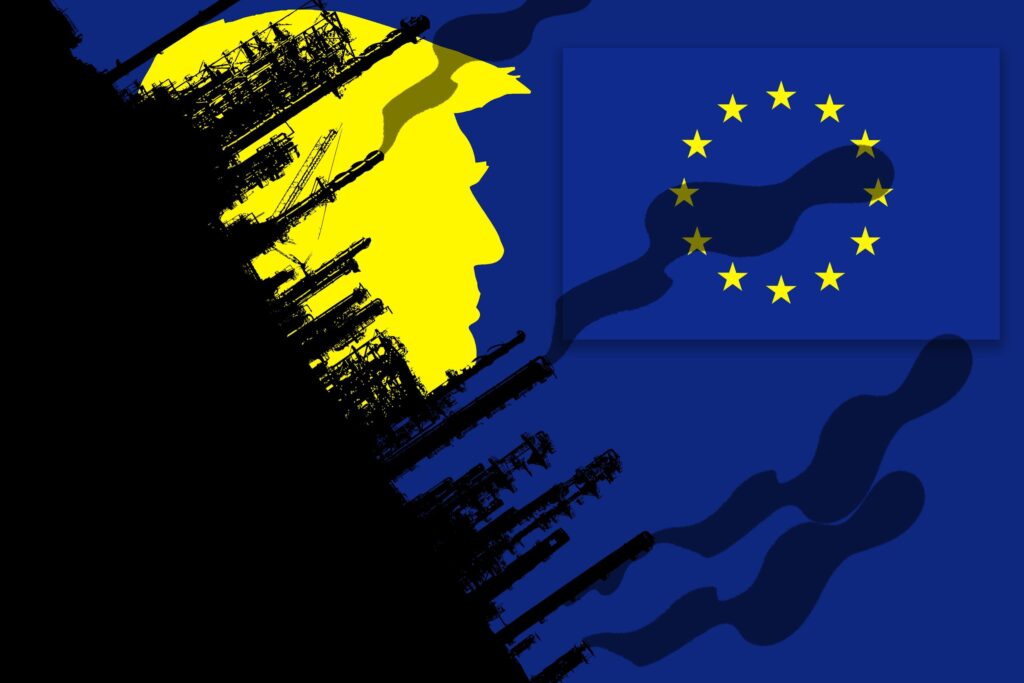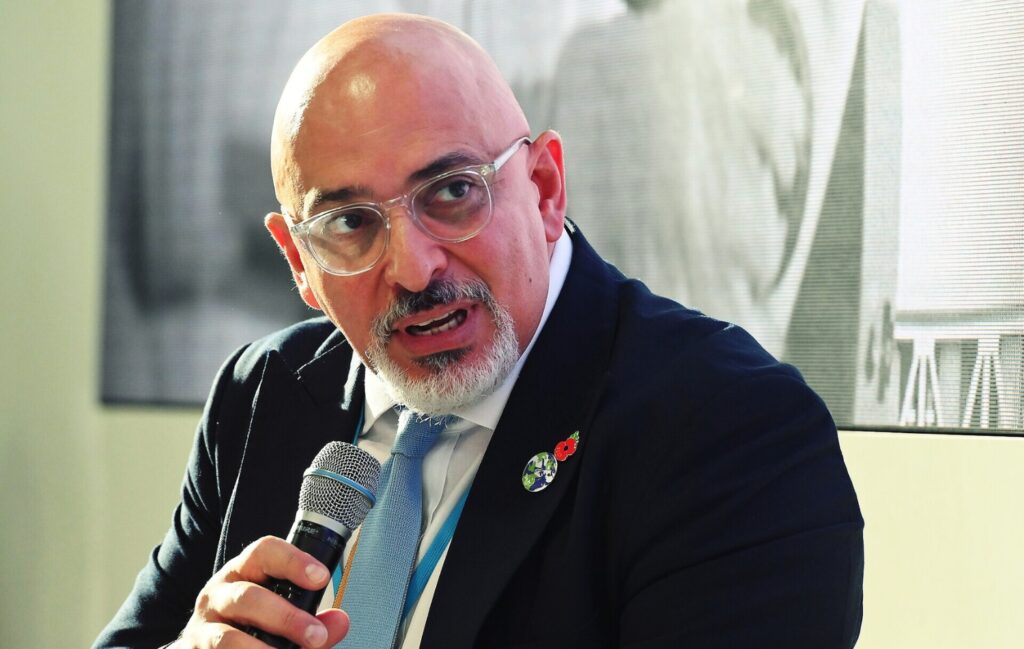An oil-funded think tank backed by Hungarian Prime Minister Viktor Orbán is involved in organising widespread farmer protests in the run-up to the EU elections, DeSmog can reveal.
Hardline farming groups pledged to “sweep away” EU decision-makers at a “lunch and discussion” event, which was hosted by MCC Brussels on April 9.
The think tank is an offshoot of Mathias Corvinus Collegium – an educational institution that in 2020 received more than $1.3 billion in Hungarian state funding. It convened a number of far-right linked farming groups from 10 EU countries in the Belgian capital.
Speakers at the meeting included the hardline Dutch organisation Farmers’ Defence Force (FDF), which hit out at EU environmental and trade policy.
Spokesperson Sieta van Keimpema accused the EU Commission of “deliberately exterminating its own farmers and its own food production”.
She told the audience at the “eco-friendly” Thon Hotel EU that their movement would “take a broom and sweep them away from their Brussels homes, sweep them away from the 6th to the 9th [of June]”.
The group hopes to rally 100,000 people to attend protests on June 4, in what it sees as a critical moment to influence voters. The demonstration would be the culmination of a wave of Europe-wide protests by farmers, which have triggered an unprecedented rollback of environmental measures.
The protest is backed by organisations from Belgium, Bulgaria, Germany, France, Ireland, Italy, the Netherlands, Poland, Romania and Spain, according to FDF’s press release.
MCC, which also hosted the controversial “hard-right” NatCon conference in April, has ramped up its hostility to EU-led green farming reforms over the past six months. It is a newcomer to the farming debate, first publicly declaring support for the cause last summer, months before widespread protests that saw tractors block roads in countries across the continent earlier this year.
A report from the Financial Times in February suggested that the think tank had organised farmers demonstrations in January, though it did not name the group directly. An event on the MCC Brussels website appears to corroborate this, inviting farmers to attend a protest on January 24 against “the EU’s overzealous green policies” followed by networking drinks.
Cas Mudde, a professor specialising in the populist radical right at University of Georgia, says MCC Brussels’ support of protests fits with the eurosceptic agenda of Orbán, whose political director chairs the think tank’s parent group.
“The far-right in general, and Orbán in particular, has a strategic reason for supporting the radical farmers in Brussels,” Mudde told DeSmog. “They create the public image of chaos and dissatisfaction with the EU, which helps their anti-EU message for the European election campaign.”
MCC, the parent organisation for MCC Brussels, was contacted for comment prior to publication. MCC Brussels was contacted immediately after publication of the article but has yet to offer a comment.
‘Much More Radical’
Farmers have clashed with police and lit fires outside EU buildings in Brussels in a spate of demonstrations in the past four months. While farmers have protested against an anticipated surge in bureaucracy from proposed green laws, complaints also focused on low prices at the farm gate and lack of protection against increasingly extreme weather.
The protests have led to the weakening of proposed environmental reforms that were aimed at reducing climate impacts from agriculture, which is responsible for 11 percent of greenhouse gas emissions in the EU.
Led by the right-wing European People’s Party, the EU’s largest political grouping, MEPs last week voted to weaken the majority of sustainability requirements for farmers in return for EU CAP subsidies.
In some cases, far-right groups have hijacked protests, with authorities in Germany warning that groups there could even be using farmers to trigger an “overthrow” of the government.
Far-right parties are expected to make major wins at the upcoming EU ballot, riding on rural discontent.
Speakers at the April 9 event included Thomas Fazi, an author and researcher for MCC Brussels who has criticised the “great net zero lie” and spread conspiracy theories about the World Economic Forum attempting to control the food system through environmental laws. In his address, Fazi praised the farmers protests and warned against the EU’s “decades-long attack on Europe’s small-farming model”, urging farmers to be “much more radical in their analysis and demands”.
Fazi did not respond to DeSmog’s requests for comment.
Far-Right Attendance
The Brussels discussion was followed by an invitation to a separate meeting held by farmers and a reception in the EU Parliament.
Although a full list of attendees was not made public, YouTube video footage and images posted on social media show that a number of key far-right figureheads participated in the MCC event.
Alongside Fazi, speakers included van Keimpema from Farmers’ Defence Force, who ran as a candidate for the Netherlands’ fringe far-right party Belang van Nederland last year. She told the event: “They are killing farmers and food production, slowly but surely, through land grabbing.”
In 2019, van Keimpema warned of a “civil war” between farmers and the Dutch government over environmental measures. In a post on X in February, she dismissed climate warnings as “hysterical disaster and fear-mongering”.
Farmers Defence Force, which was formed in 2019 to oppose animal rights activists, played a key role in protesting the country’s plans to buy out cattle farms in order to address the Netherland’s nitrogen pollution crisis. Its members have been criticised for aggressive tactics such as harassing journalists and intimidating environmental activists.
The group described the MCC Brussels gathering as “a hopeful day”. In a press release issued after the meeting, it called on the “warriors” to “defend companies and families against the EU Commission’s demolition policy. Together. On June 4.”
Speaking on behalf of FDF, Van Keimpema told DeSmog that the group was not involved in organising any “media meetings” but had been invited as a speaker to the MCC event.
“We accepted, just as we accept invitations to speak at government meetings, TV programmes, papers, universities, schools, political and scientific events and in parliaments, from left to right politically,” she said.
Van Keimpema added that their quotes had been “taken out of context”.
Another attendee, dairy farmer Bart Dickens from the Belgian Farmers Defence Force, told the Brussels meeting that the only way to win the EU’s “war on farming” was for farmers across Europe to “fight together”. The group, which was formed in 2023, claims to be independent but previously received funding from its Dutch counterpart.
A number of other far-right linked farmers groups were also present at the Brussels meeting.
A member of France’s Coordination Rurale, which has strong links to the country’s National Front party, was photographed outside the hotel in the group’s signature yellow beret. Also present were members of Germany’s hardline farming group Land Schafft Verbindung (LSV). At least one LSV member has had past ties to the neo-Nazi group NDP, now called Die Heimat.
Spain’s Plataforma 6-F, which was set up by a former affiliate of populist party Vox, are also reported to be taking part in the June 4 protests (although their presence at the MCC event is unknown).
“European farmers have made their voices heard and rattled, potentially even panicked, the institutions of the European Union,” MCC Brussels said on its webpage for the event.
DeSmog identified other far-right politicians in attendance. Front-row seats were held by Patricia Chagnon-Clevers, member of the European Parliament from France’s National Rally (formerly National Front) party, who posted on X that she was “delighted to participate”, and Hermann Kelly, leader of the Irish Freedom Party, which campaigns for Ireland to leave the EU.
The Farmers Defence Force has so far raised over €11,000 euros of a €50,000 euro target for the June protests. The group told news website Euractiv that it hoped the demonstrations would “make people aware of the possibility to vote for a different future” at the EU elections.
‘War on Farming’
MCC Brussels is widely understood as part of Orbán’s plan to reshape the politics of the continent. The autocrat Orbán – who is in his fifth term as Hungry’s leader – is a major critic of the European Union, and recently declared plans to “occupy” Brussels and put a far-right stamp on policies around migration, climate and gender.
In 2020, the Hungarian government gifted the parent of the think tank, Mathias Corvinus Collegium, 10 percent stakes in the oil and gas giant MOL and in the pharmaceutical firm Gedeon Richter – two of the country’s three most valuable companies. It also provided more than $460 million in cash and $9 million in property.
The Collegium – which models itself as an educational institute – made $65 million in dividends from the oil company in 2022.
MCC Brussels claims to be a long-term supporter of farmers, who it says have been targeted by “left-wing” green reforms. However, it only began publicly posting about the issue last year.
In a report issued in November titled “The Silent War on Farming: How EU policies are destroying our agriculture”, MCC claimed that the EU was “at war with its own farmers” and accused the bloc of “an environmentalist crusade”.
On an event page for a farmer demonstration and networking event hosted by MCC Brussels in January, the think tank stated: “the fortunes of farmers across Europe suffer from a common problem: the EU’s overzealous green policies and disinterest in, if not disdain for, farmers and ordinary people living in rural communities.”
In the last five years the EU has attempted to curb the polluting impacts of the agriculture industry, which has contributed to sharp decline in bird and bee populations across the bloc. The last Commission tabled a package of farming measures including cuts to pesticide use and steps to protect ecosystems on farmland – proposals which more than 6,000 scientists dubbed “cornerstones of food security and human health” in an open letter last year.
Orbán has embraced the farmers’ protests. In January 2024, his official X account posted a video of him at the demonstrations, accompanied by the words, “We will stand up for the voice of the people! Even if the bureaucrats in Brussels blackmail us.” The following month, his ruling Fidesz party posted a video on Facebook which also used the farmers’ protests to promote opposition to the EU.
“Orbán has carefully crafted his profile as a defender of large scale agriculture,” Balša Lubarda from DAMAR Research Institute, an expert in the far right and sustainability, told DeSmog.
“The farmers’ protests seem to be an easy opportunity for Orbán to entrench his populist position as ‘the defender of the people against the climate elites’, which will most certainly bring votes.”
The organisations referenced in the article were approached for comment and had not responded prior to publication.
Additional research and reporting by Laura Villadiego, Coen Ramaer, Katharina Wecker and Rachel Sherrington
Editing by Phoebe Cooke and Hazel Healy
Update
Friday 3 May at 2:45pm. We updated the article to clarify that MCC Brussels were contacted immediately after the article was published. Its parent company MCC was contacted prior to publication.
Subscribe to our newsletter
Stay up to date with DeSmog news and alerts








